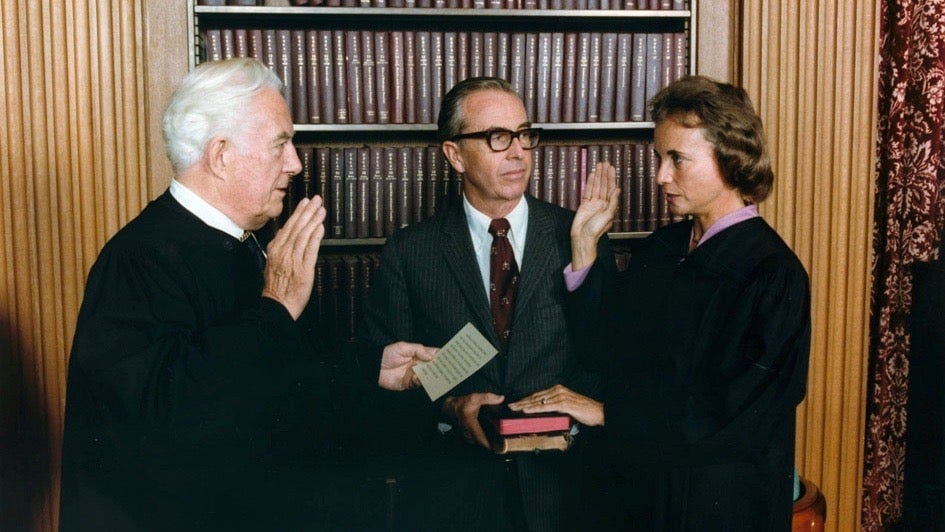Sandra Day O’Connor’s farewell letter is a plea for country before party
Sandra Day O’Connor is not an average American, and there’s plenty of evidence to support this contention.


Sandra Day O’Connor is not an average American, and there’s plenty of evidence to support this contention.
For one, she was the first woman to serve on the US Supreme Court, appointed in 1981 by Ronald Reagan. And she’s remained active in public life even after her retirement in 2006, committed to advancing civic learning and sharing her passion for the US Constitution and the government it lays out. Today (Oct. 23), she announced she’s stepping out of the limelight because she’s been diagnosed with the beginning stages of dementia and probably has Alzheimer’s disease.
In a sort of farewell letter to the nation (pdf), she urges the rest of us to take up the cause of active citizenship that she can no longer devote herself to entirely, writing:
I feel so strongly about the topic because I’ve seen first-hand how vital it is for all citizens to understand our Constitution and unique system of government, and participate actively in their communities. It is through this shared understanding of who we are that we can follow the approaches that have served us best over time–working collaboratively together in communities and in government to solve problems, putting country and the common good above party and self-interest, and holding our key governmental institutions accountable.
O’Connor, 88, is a pioneer in more ways than one. In 2010, she started iCivics, a non-profit institution that provides free civics games and tutorials to students online and creates lesson plans for teachers in classrooms. On the site, she explains the project, saying, “The practice of democracy is not passed down through our gene pool. It must be taught and learned anew by each generation of citizens.”
In her letter today O’Connor called on all Americans to commit to the project of democracy by engaging in their communities and participating. “It’s not enough to understand, you’ve got to do something,” she writes.
If anyone is in a position to say this, it’s O’Connor, who as a self-described “young cowgirl from the Arizona desert” never could have imagined becoming the first woman on the high court. “I hope that I have inspired young people about civic engagement and helped pave the pathway for women who may have faced obstacles pursuing their careers,” she writes. “While the final chapter of my life with dementia may be trying, nothing has diminished my gratitude and deep appreciation for the countless blessings in my life.”
In response to O’Connor’s announcement, chief justice John Roberts issued a brief statement (pdf), writing that he is saddened by the news but “not at all surprised” that she used the moment “to think of our country first, and to urge an increased commitment to civics education, a cause to which she devoted so much of her time and indomitable energy.” He called her “a towering figure in the history of the United States and indeed the world” and “a role model not only for girls and women, but for all those committed to equal justice under law.”
Roberts concluded, that “no illness or condition can take away the inspiration she provides for those who will follow the many paths she has blazed.” It’s a sentiment that everyone can agree with—whatever their political affiliation.